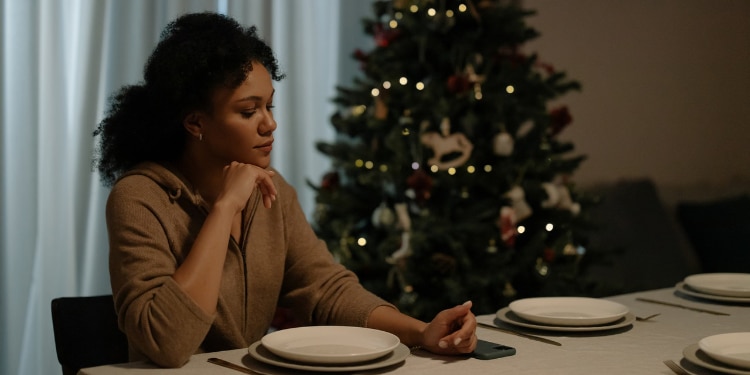











Grief is a complicated thing. Just when you think you have a handle on it, it pops up to rear its ugly head. And, as if that isn’t hard enough, the littlest and most unexpected things can trigger it. A distinct smell, a savory taste, or the notes to a beloved song can instantly bring you back to a precious moment from long ago. In addition to these unforeseen moments, there are certain times of the year when we become the most vulnerable to our grief. Birthdays, special occasions, and holidays usually top that list and can immediately send us spiraling right back into the depths of despair.

The holidays can be a difficult time whether you have lost someone several weeks ago, months ago, or many years prior. The traditions, rituals, and get-togethers seem to only rip open and exacerbate painful, unhealed wounds. Navigating the holidays after the loss of a loved one can be extremely challenging. You will undoubtedly hit many roadblocks and detours, but you will get through it if you can keep a few things in mind.
For starters, throw platitudes, manners, and the rule book out the window. During the holidays, anything goes. If you feel that you want to celebrate, then go ahead and celebrate. If you feel that you don’t have the heart to celebrate, then don’t. Of paramount importance is taking care of yourself and permitting yourself to do what feels right to you. If you have to break tradition one year or break it completely, then go ahead and do it without guilt.
Secondly, be kind to yourself. During the holidays, especially after a loss, we tend to wallow in self-pity. We may berate ourselves for things that we should have done, or things that we could have done better. We ponder things that we said or things that we didn’t say to our loved ones. We focus on the negative and what has gone wrong, as opposed to the positive and what has gone right.
The holidays are a perfect time to instill meaning, pay attention, and be grateful for what we have. Undoubtedly, this can be difficult when you are hyper-vigilant about the one thing that you do not have, your loved one. Even though your loss could never be minimized or assuaged, there are always things to be grateful for. Your loved one would unquestionably want you to move forward and find happiness once again.
The holidays can also be a perfect time to honor your loved one. You can carry out their traditions, toast to them at dinner, or serve their favorite dish. Perhaps your loved one led the family in song or prayer before dinner, or maybe they always sat at the head of the table. Some may even find it comforting to leave their loved one’s chair empty or to set a place for them at the table, as a way to pay homage to them and their memory.
Finally, coping mechanisms are imperative at this time of year. Keep yourself going with exercise, yoga, or meditation. Relax with a bubble bath, calming music, or anything else that helps you feel at peace. If you need to talk or cry, call a friend or family member. If you need to independently get your thoughts and feelings out, write in a journal, sketch, or paint.
If things ever become too much for you to handle, there is no shame in seeking out help from a professional therapist with experience in grief counseling. They can provide you with the extra support and assistance that you need to cope with your loss, especially when it is around the holidays.